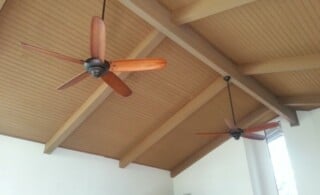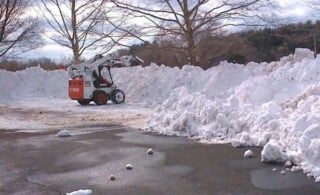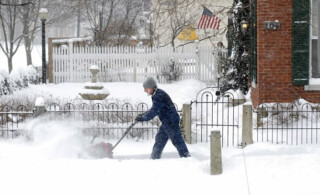
Imagine: driving rain and a window-rattling crack of thunder jolt you awake. You notice the lights flicker, but they come back on and you think to yourself, “no harm done,” and go back to sleep. But the next morning you oversleep and your alarm clock is flashing “12:00.” You have been the unfortunate victim of a voltage surge. Voltage surges are an especially nasty and costly example of the power interference that occurs in homes every day. Fortunately, there are actions you can take towards achieving surge protection for your home and belongings. To kick things off, let’s discuss quickly the two most common forms of power interference that can impact you as a homeowner.
Voltage Dips
A voltage dip happens when motors in high-draw devices such as dishwashers and refrigerators come on and greatly reduce the energy available for other devices. Flickering lights are a common symptom of a voltage dip. While a voltage dip isn’t a huge problem, it can be a big inconvenience, especially if it’s severe enough to cut power to your home enough to trigger alarms, turn off computers, or re-set clocks.
Voltage Surge
The most serious form of power interference is the voltage surge. This momentary rise in voltage can start inside or outside a home, and can damage sensitive electronic equipment such as computers, home entertainment centers, treadmills, and other (often expensive) electronic devices.
Surge Protection is the Solution
There are two types of surge protection available to homeowners today. The most common and familiar form of surge protection is the surge suppressor, usually seen in the form of a power strip, which can handle surges up to 6,000 volts. The surge arrestor, on the other hand, is installed in or near the main service panel of a home and offers surge protection against voltage surges up to 20,000 volts (a.k.a. lightning strike).
Surge Suppressors
Surge suppressors are designed to handle the smaller surges which can occur hundreds of times a day in a typical home’s wiring, when devices with motors, such as hair dryers, refrigerators, and water pumps, turn off. Suddenly the energy these devices were consuming is diverted elsewhere in the form of excess voltage. Surges also occur when the electric company switches power from one geographic area of the grid to another, and when supply and demand in the region changes.
Although they may never be strong enough to destroy electronic components, these frequent small surges can slowly break down wiring insulation, causing electronic devices to operate improperly and wear out prematurely. Plugging your sensitive and expensive electronic devices into surge suppressors is an easy, cost effective way to help your equipment last longer and work better.
Ready to start your electrical project?
Find ProsSurge Arrestors
For more complete surge protection, you will need a whole house surge arrestor, which has the capacity to protect against large surges up to 20,000 volts. Designed to protect switches/outlets, appliance motors, the circuit breaker box, and all the wiring in the home, surge arrestors pick up where surge suppressors leave off. Good suppressors can cut down surges to 330 volts, whereas most arrestors don’t reduce surges much below 600 volts. Therefore, both kinds of protection are advised for maximum protection.
Hire a Professional
Whole house surge arrestors should only be installed at the home’s electrical service panel by professional, licensed electrical contractors. There are dozens of different makes, models, and styles of arrestors on the market to provide you with surge protection, all of which vary greatly in price and quality. The type and size of the service panel, how full the panel is, as well as the number of appliances and electronic devices that need to be protected, all play a role in determining which surge arrestor should be installed. Talk to an expert about getting the right model for you.
 Upgrading Electrical Circuits
Upgrading Electrical Circuits  Ceiling Fan Installation
Ceiling Fan Installation  Snow Removal Tips
Snow Removal Tips  Hiring Professional Snow Removal Contractors – Tips, Advice
Hiring Professional Snow Removal Contractors – Tips, Advice  Checklist: Winter Landscape Tips
Checklist: Winter Landscape Tips 

Are You Familiar With This Topic? Share Your Experience.